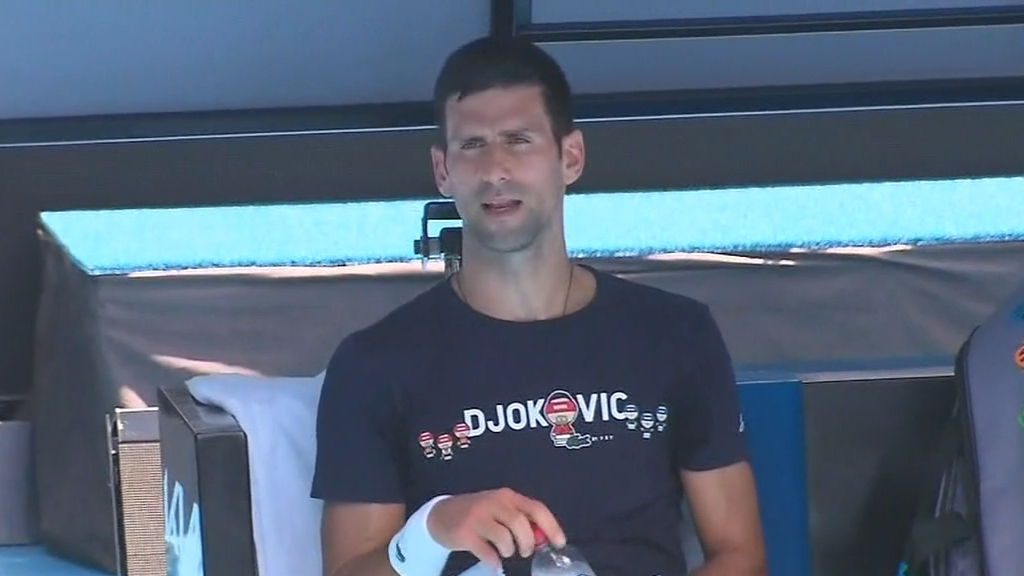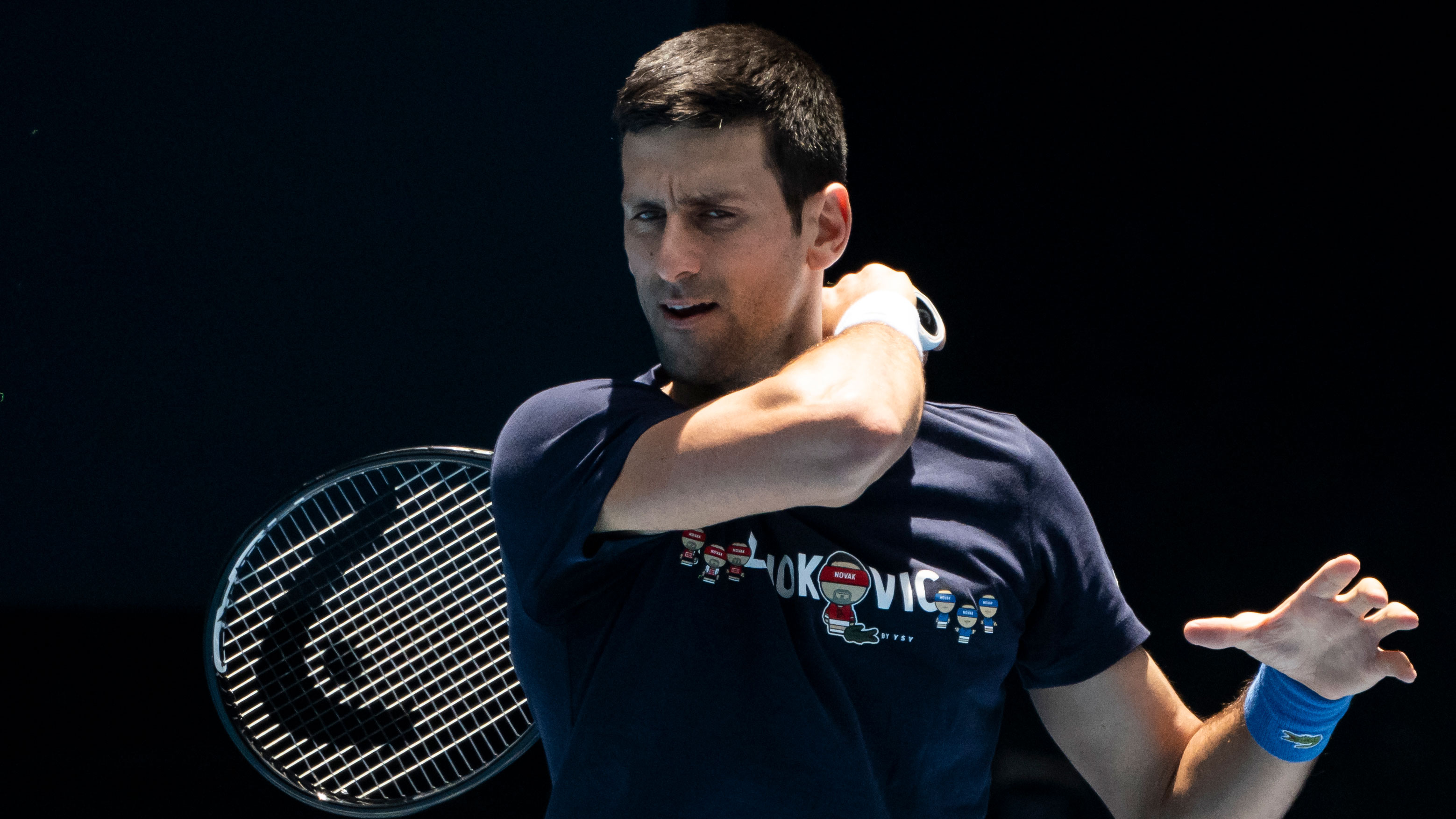The French journalist who interviewed Novak Djokovic without knowing that the men’s world number one had tested positive for coronavirus, claims he was told the topic of vaccination was off limits.
Writing in L’Equipe sports daily, Franck Ramella said the instructions were clear going into the interview with Djokovic in Belgrade on December 18, two days after Djokoivc claims he tested positive for COVID-19.
The journalist said the topic was obviously “very sensitive”.
READ MORE: Djokovic bombshell in response to damaging photos
READ MORE: World mourns Olympic star dead at 29
READ MORE: Bizarre BBL wicket baffles experts
“The instructions were clear — no questions about vaccination,” he wrote.
“So we didn’t ask him if he had made efforts to get tested. If we had asked him, what would have been the point?”
Ramella said Djokovic refused a request from the L’Equipe photographer to remove his mask for five minutes during the interview, but did later pose maskless for a photo.
The journalist stated that he found out a few weeks later that Djokovic had tested positive, and that he tested negative after the interview.
The world No.1 released a statement yesterday, admitting to an “error of judgement” in accepting the interview request.
“I felt obliged to go ahead and conduct the L’Equipe interview as I didn’t want to let the journalist down but did ensure I socially distanced and wore a mask except when my photograph was being taken,” Djokovic said.
“On reflection, this was an error of judgment and I accept that I should have rescheduled this commitment.”
https://twitter.com/BenRothenberg/status/1481259602859954178?ref_src=twsrc%5Etfw
At the time, Serbia required those who were infected with COVID-19 to isolate for at least 14 days. But Djokovic was seen a little over a week after his positive test on the streets of Belgrade, though he said he had tested negative in between.
Meanwhile, Djokovic addressed the Australian travel declaration by saying it was submitted by his support team and “my agent sincerely apologises for the administrative mistake in ticking the incorrect box.”
“This was a human error and certainly not deliberate,” he wrote. “My team has provided additional information to the Australian Government to clarify this matter.”
The decision could take a while — but there is time pressure, given that the draw to determine brackets for the Australian Open is set to take place this afternoon.
Immigration Minister Alex Hawke’s office issued a statement saying Djokovic’s legal team had filed further documents and added: “Naturally, this will affect the timeframe for a decision.”
At issue is whether Djokovic has a valid exemption to strict rules requiring vaccination to enter Australia having recently recovered from COVID-19.
His exemption to compete was approved by the Victoria state government and Tennis Australia, the tournament organiser. That apparently allowed him to receive a visa to travel.

But the Australian Border Force rejected the exemption and cancelled his visa upon arrival before a federal judge overturned that decision. Lawyers for the government have said an infection was only grounds for an exemption in cases in which the coronavirus caused severe illness — though it’s not clear why he was issued a visa if that’s the case.
The initial decision to let him compete sparked complaints that Djokovic was being given special treatment — and the subsequent cancellation of his visa raised allegations that he was being targeted once the issue became political. The saga is playing out against the backdrop of growing concern in Australia over surging COVID-19 cases — and the government’s strategy to contain them.
Lawyer Greg Barns, who is experienced in visa cases, told The Associated Press that the immigration minister has the “personal power” to cancel the visa without having to give written notice or a reasonable time for Djokovic to respond.
If Djokovic’s visa is canceled, his lawyers could go back to court to apply for an injunction that would prevent him from being forced to leave the country.
If the government decides instead to first give notice, Barns said it could give Djokovic up to nine days to respond.
“That might be a way of giving Djokovic a chance in the tournament and then kicking him out at the end of that,” Barns said.
Sydney-based immigration lawyer Simon Jeans said there’s “a lot of fudges” in the law and the immigration department would be taking its time to make sure any visa cancellation was “appeal-proof.”
For a daily dose of the best of the breaking news and exclusive content from Wide World of Sports, subscribe to our newsletter by clicking here!

